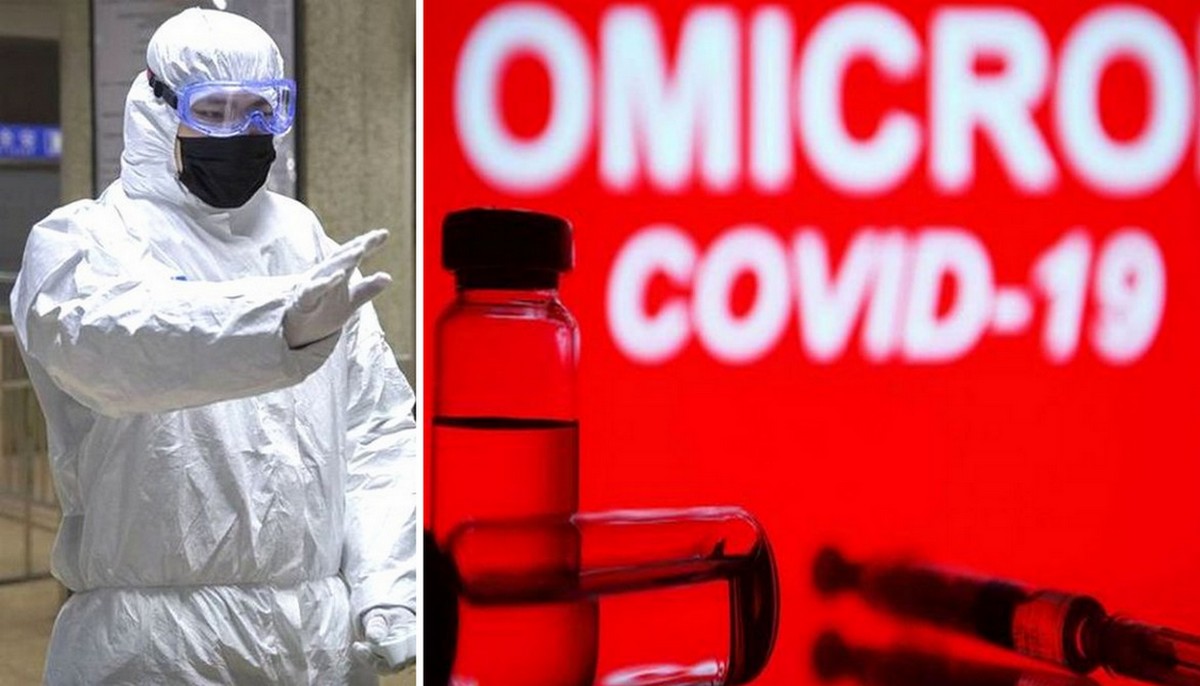The new version of the coronavirus turned the whole scientific world upside down, because, according to experts, this strain has a higher rate of spread, a larger set of mutations and is still localized only in southern Africa. It was named “Omicron”.
What is Omicron and where did it come from?
The Omicron version (B.1.1.529) is the latest version of Covid-19, which causes many concerns among experts. The WHO first reported the new strain on November 24, 2021, after a case of the disease was reported in Botswana on November 9. Genomic analysis quickly showed that this specimen is a new variant, originally named B.1.1.529. Scientists from South Africa quickly traced the variant, which appears in a number of local provinces. WHO experts will later call it a “worrying option.”
A particularly unusual aspect of the appearance of Omicron is the surprisingly isolated genomic origin. The complete dominance of the Delta option over the past six months has led many scientists to predict that any future for the options will “almost certainly” come from the Delta.
However, according to Trevor Bedford, a researcher who studies the evolution of viruses, Omicron was not formed from a recent version. According to Barry Schub, chairman of South Africa’s advisory committee on Covid vaccines, he said the mutation in the Omicron variant could be linked to “reservoirs” of the virus hidden in unvaccinated and immunocompromised individuals. He added that it would also be “logical” that the high prevalence of HIV in southern Africa had an impact.
Experts met last Friday to assess how deadly it really is. It is reported that the new strain has a large number of mutations in the adhesion protein of the virus.
It is currently believed to be located in at least 9 countries on different continents. Thus, in Europe, the first case was detected on November 26 in an unvaccinated tourist returning from abroad.
Where does this name come from?
Omicron is the thirteenth variant of SARS-CoV-2, which received the official designation of the WHO, but is marked with 15 letters of the Greek alphabet. A WHO statement said it had decided to skip Nu and Xi, the 13th and 14th letters of the Greek alphabet, which led experts to choose the next letter in the alphabet, Omicron.
“Two letters were omitted – Nu and Xi – because Nu is too easy to confuse with” new “and Si was not used because it is a common name and designation abroad for new diseases, developed by the WHO in 2015.
Excessive panic?
Doctors in the regions where Omicron has appeared have so far stated that this option causes only mild disease. But these initial infections were found mainly in the younger population (up to 30 years) and were mild, so it remains to be seen whether Omicron causes more severe forms of the disease.
A number of countries have now temporarily banned travel from several countries in southern Africa, where the option was found, which on Friday was called a “sharp, draconian” reaction by South Africa’s health minister.
Asked if people should be afraid of the new option, Professor and microbiologist Kalum Sample, who is part of the UK Government’s Scientific Advisory Group on Emergencies, told the BBC: “This is not a disaster, I think we are greatly exaggerating the situation.”
In addition, the UN Health Agency said on Monday that the delta option is still the cause of most current infections worldwide and as such is still of greatest concern.
“More than 99% of cases worldwide are related to the delta variant, and more deaths occur among the unvaccinated,” WHO chief researcher Dr Sumya Swaminathan told CNBC on Monday.
Do modern vaccines protect against Omicron?
As of November 2021, the Food and Drug Administration has approved three types of Covid-19 vaccines, including Moderna, Johnson & amp; Johnson and Pfizer.
It is unclear whether any of these vaccines protect against the new strain, but it is still strongly recommended for those eligible for vaccination and revaccination. Following the announcement by WHO, Pfizer said it was testing its vaccine against the strain, but could make a new vaccine for it “about 100 days” after approval by government regulations.
Moderna is also conducting tests to determine how effective their vaccine is against Omicron. “We have said from the beginning that, in an effort to defeat the pandemic, it is very important to take the initiative with the development of the virus,” said Moderna CEO Stefan Bankel.
“Mutations in the Omicron variant are a cause for concern, and in the last few days we have been moving as quickly as possible to implement our strategy to combat this variant,” he continued.
“We have three lines of defense that we are promoting in parallel: we have already evaluated the booster with the highest dose of mRNA-1273 (100 μg), and secondly, we are already studying two candidates for a booster with multiple valencies in the clinic that were designed for prediction mutations similar to those that appeared in the Omicron variant, and the data are expected in the coming weeks, and third, we are rapidly advancing a candidate for a booster specific to Omicron (mRNA-1273, 529).
Johnson & amp; Johnson is also testing and closely monitoring the new vaccine. So far, the results are unknown.
Earlier, the SEC wrote that “ The study shows that chewing gum traps 95% of Covid particles in the mouth “.
This content, including tips, contains only general information. This in no way replaces a qualified medical opinion. Always consult a specialist or doctor for more information. We wish you good health, your DIP.

